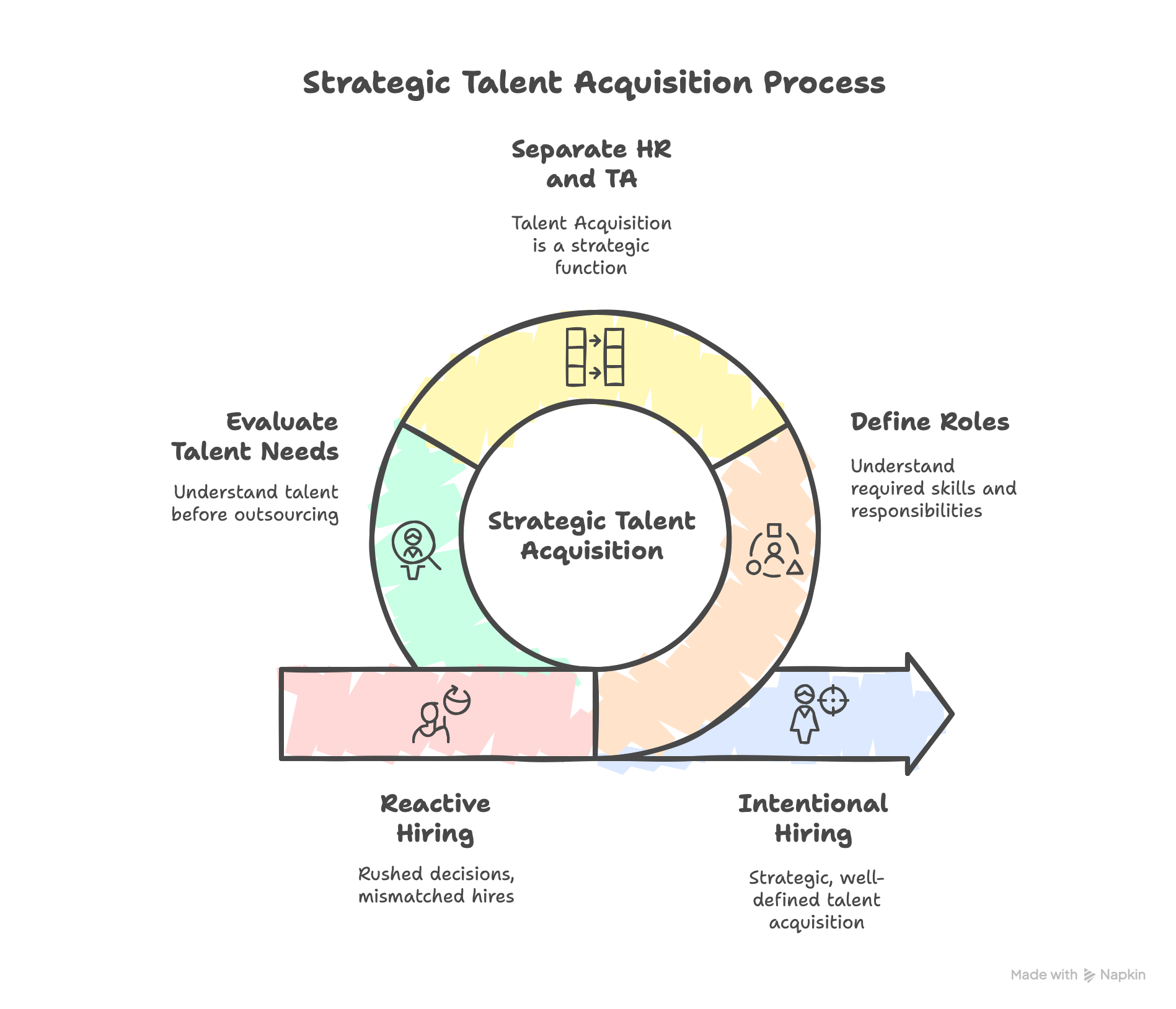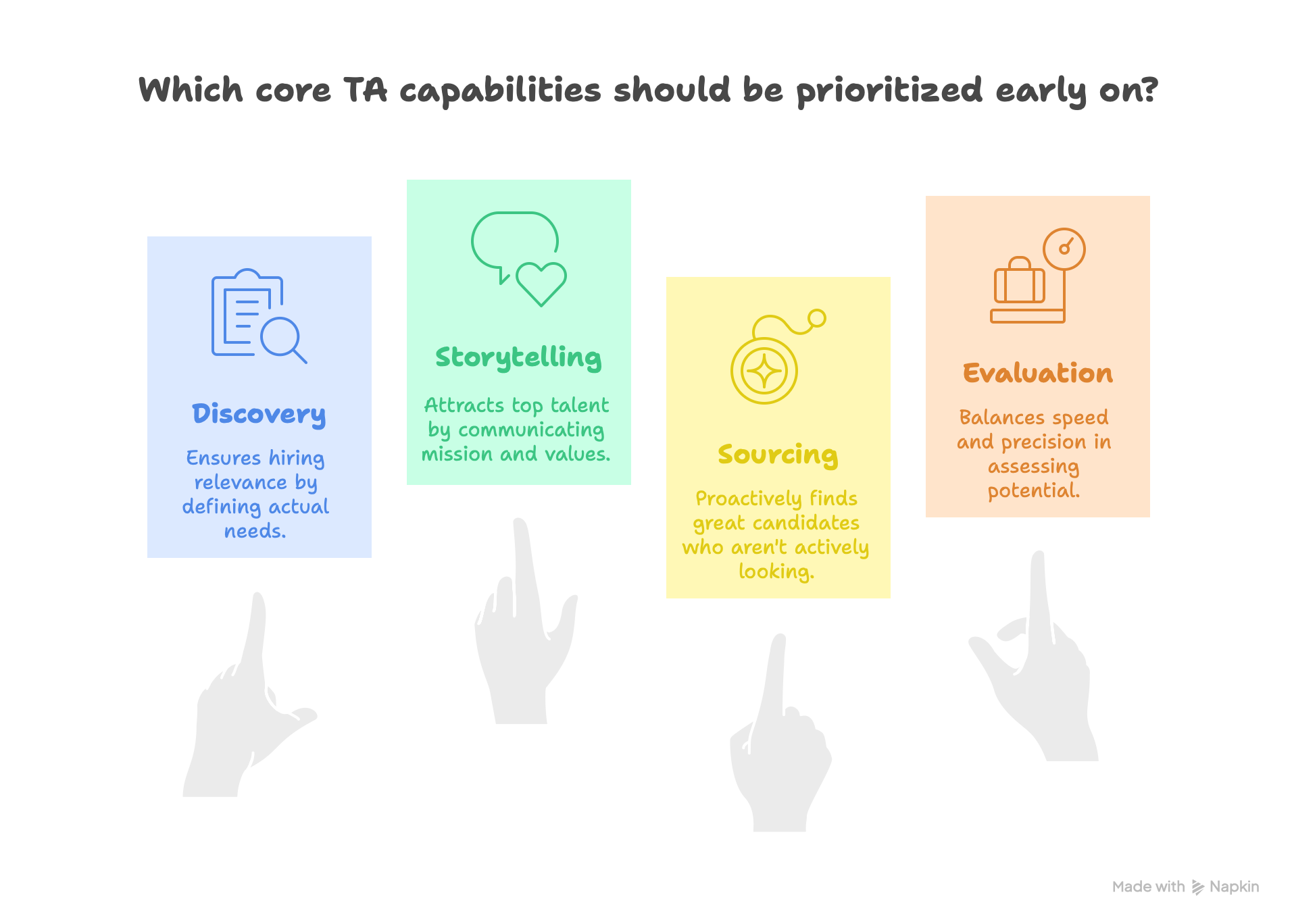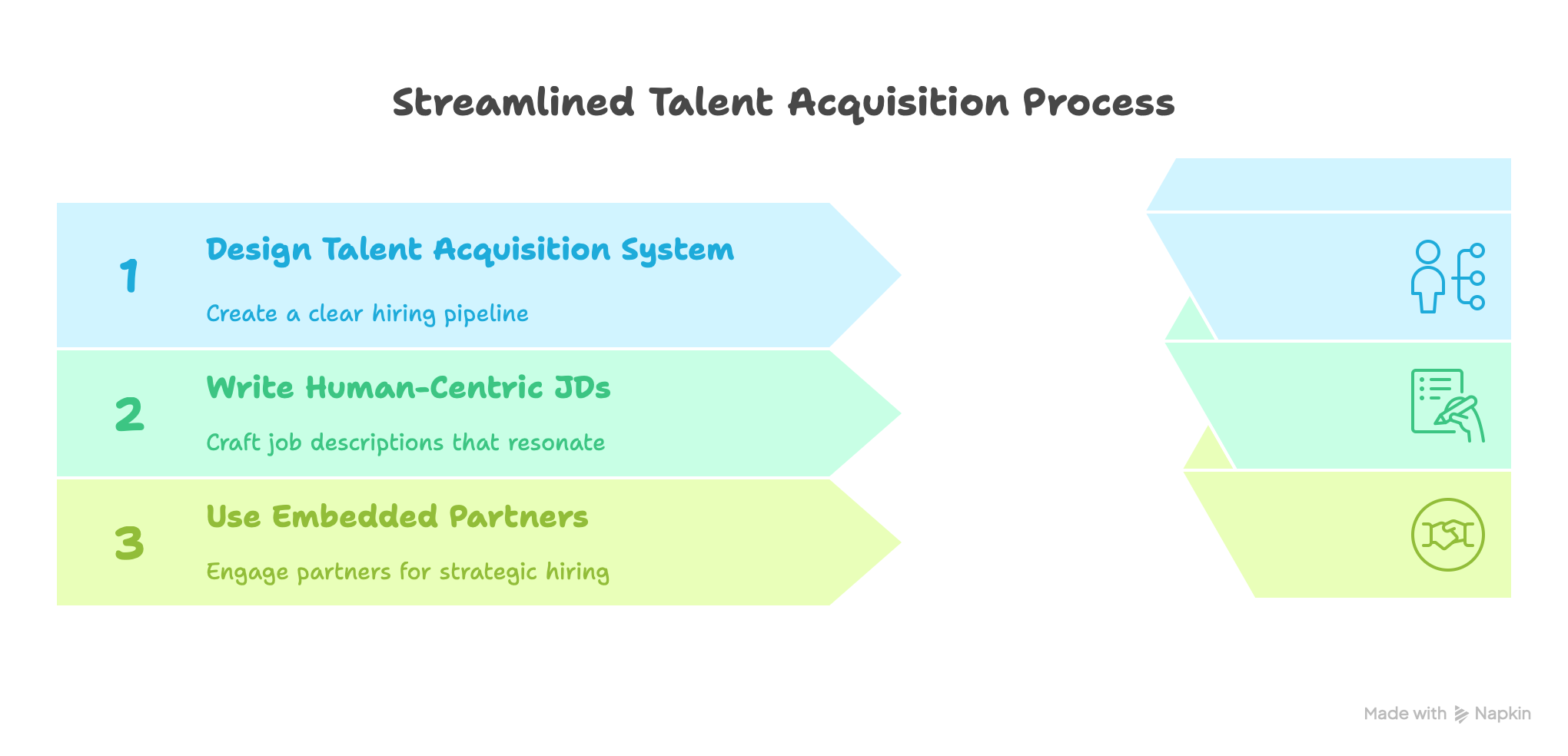🧭 How Early-Stage Startups Should Build Their First Talent Acquisition Function
Most startups hire like they build IKEA furniture — no manual, just vibes and urgency.
But hiring isn’t intuitive. Especially not when you’re building your first team, juggling funding milestones, and trying to move fast without breaking your culture.

This article breaks down exactly how early-stage companies should approach Talent Acquisition — not just “recruiting” — to avoid costly mistakes and start scaling right.
⚠️ What Usually Goes Wrong
1. Hiring reactively, not intentionally.
You realize you need someone only when the pain hits. So you post a job, cross your fingers, and hope for magic. This leads to rushed decisions, mismatched hires, and culture cracks.
2. Confusing roles: HR ≠ TA.
Many founders lump payroll, onboarding, legal, and recruiting into “People Ops.” But Talent Acquisition is a distinct, strategic function — closer to marketing and sales than compliance.
3. Outsourcing too early (or too blindly).
Using agencies can make sense — sometimes. But if you don’t understand what you’re hiring for or how to evaluate talent, no external help will save you. You can’t delegate what you don’t define.
🧱 What a TA Function Looks Like (Even for Teams of 5–15)

Even small teams need these four core TA capabilities early on:
Read about - Speed vs. Precision is real. Aim for both.
You don’t need a 10-person team. But you do need clarity, ownership, and workflows that scale.
🚀 How to Start Building It (Without Hiring a Full TA Team)

Step 1: Assign Ownership
If you don’t have a TA Lead, assign a co-founder, operator, or People lead who can own hiring quality and velocity. Make it part of their OKRs.
Step 2: Design a Simple Hiring System
Define your pipeline steps: sourcing → screening → interviews → offer → onboarding.
Use lightweight tools — Airtable, Notion, Ashby — and build feedback loops.
Step 3: Write for Humans
Your JD should sound like you. Avoid generic phrases (“fast-paced,” “rockstar”).
Clearly explain what success looks like, who the candidate will work with, and why the role matters.
Step 4: Use Help That Feels In-House
Agencies throw CVs. Embedded partners translate business goals into hiring strategy.
🔁 Common Founder Question: “When Should I Hire a Talent Partner?”
Answer: Earlier than you think.
If you’re making 3+ hires in 6 months — especially across different functions — you need help framing, sourcing, and closing well.
The cost of a bad hire = 2–3x salary.
The value of a great hire = exponential.
🧠 Final Thought
Building a TA function early doesn’t mean overengineering.
It means treating hiring like the strategic growth lever it is.
Founders who figure this out early avoid pain, hire better, and move faster.
👉 Interesting? Let's talk.
📚 Related Reading:
